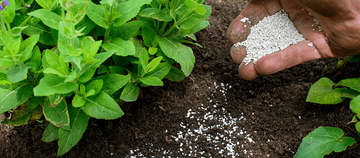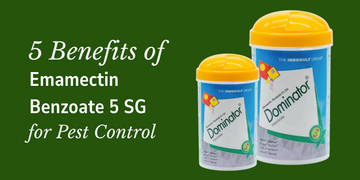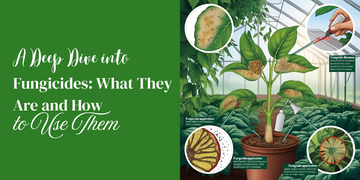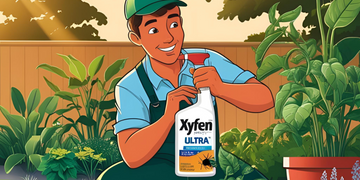Whether you're caring for a vibrant flower garden, a lush lawn, or crops on your farm, gardening in Bettendorf, like anywhere else, requires careful attention to soil health and plant nutrition. One question we frequently receive about how to feed our landscapes here in the Quad Cities is: "What's the difference between natural and synthetic fertilizers?" In this blog, we'll look at the differences between natural and synthetic Planting Fertilizers, shining light on their composition, benefits, and application methods.
Exploring the Composition and Benefits of Natural Fertilizers
Natural—or organic—fertilizers are made from living creatures and other natural materials including compost, manure, bone meal, and seaweed extract. One of the primary benefits of natural fertilizers is their organic origin, which greatly improves soil health and microbial activity. When organic fertilizers are mixed into the soil, they gradually release their nutrients, giving plants with a consistent supply throughout time. This gradual release also improves soil structure and water retention, promoting sustainable gardening practices.
Using fertilizers in Davenport and other adjacent locations demands a grasp of sustainable gardening techniques, and natural fertilizers perfectly fit this attitude. Gardeners may improve their soil while reducing their environmental effect by utilizing the power of organic matter. Unlike synthetic fertilizers, which can leak chemicals into groundwater or alter your soil's microbial balance, natural fertilizers promote biodiversity and long-term soil fertility. Fish Emulsion Fertilizer is an excellent natural fertilizer for veggies, berries, trees, shrubs, roses, and flowers, while Epsom Holly Tone provides nourishing organic care for your evergreens.

Digging into Synthetic Fertilizers
Synthetic fertilizers, unlike their natural equivalents, are produced through chemical processes, often employing mineral compounds such as ammonium nitrate, potassium sulfate, and superphosphate. These fertilizers offer concentrated nutrients in easily available forms, making them ideal for rapid plant absorption. While synthetic fertilizers provide an instant nutrient boost, they may also be harmful to soil and ecosystem health.
Although synthetic fertilizers offer convenience and quick results, overreliance on them can lead to soil depletion and nutrient imbalances. It is important to build healthy soil for a more sustainable garden over the long term. Synthetic fertilizers work well on patio planters and hanging baskets.
Matching Fertilizers to Your Garden's Needs

When it comes to fertilizers, one size doesn't always fit all. Flowering plants benefit from phosphorus-rich fertilizers, which encourage healthy root development and blossom creation. Below is a summary of some significant distinctions:
-
Flowering Plants: Fertilizers high in phosphorus are beneficial to flowering plants because they encourage strong root growth and blossom production. Choose organic options like bone meal or bat guano for a slow-release phosphorus boost that won't burn delicate roots.
-
Fruits and Vegetables: Fertilizers high in potassium promote fruit output and general plant vitality, which is ideal for nutrient-dense crops like strawberries, tomatoes, and peppers. Use Epsom Tomato Tone or Fertilome Fish Emulsion to provide a balanced blend of essential nutrients for optimal yield and flavor.
-
Trees and Shrubs: Established trees and shrubs require a steady supply of nitrogen to sustain their growth and foliage. To promote lush vegetation and enrich your soil, utilize natural fertilizers like compost or Espoma Tree Tone for optimal results. Slow-release granular fertilizers are also ideal for long-term nutrient provision, especially for larger landscape specimens.
-
Lawns: Maintaining a lush, green lawn demands proper fertilization throughout the growing season. Seek out lawn-specific fertilizers, such as our Espoma Organic Lawn Food Spring Lawn Booster, that are made with a balanced ratio of nitrogen, phosphorus, and potassium (N-P-K). The best granular fertilizers for encouraging healthy turf without excessive top growth are those with a 4-1-2 or 3-1-2 ratio. Scotts 4-Step Lawn Program is a comprehensive season-long program suitable for most lawns.
-
Seasonal Fertilization: Adjust your fertilization schedule to align with your garden's changing needs. Use fertilizers high in nitrogen in the spring to encourage new growth, mixes high in phosphorus in the early summer to encourage flowering and fruiting, and formulations high in potassium in the late summer to increase plant resistance before winter.
You may maximize your garden's nutrient intake and advance its general health by customizing your fertilizer selections to the unique needs of your plants, trees, shrubs, and lawn.
To prevent overfertilization and reduce your fertilizer's negative effects on the environment, make sure you follow the directions on the package for the right rates and times of application.
The argument over synthetic versus natural fertilizers emphasizes how crucial it is to make educated choices when gardening. Although each choice has advantages, Bettendorf gardeners can optimize the productivity and health of their landscape by taking a balanced approach. Incorporating natural fertilizers promotes soil health and sustainability, while the occasional use of synthetic fertilizers can provide targeted nutrition for specific plant needs.
By embracing sustainable gardening practices in the Quad Cities and beyond, we can cultivate thriving ecosystems that benefit both our plants and the environment. Do you need additional professional guidance on synthetic versus natural fertilizers? Stop by Kisan Pesticides today, and we'll get you started with the best food for your landscape at any time of the year!





